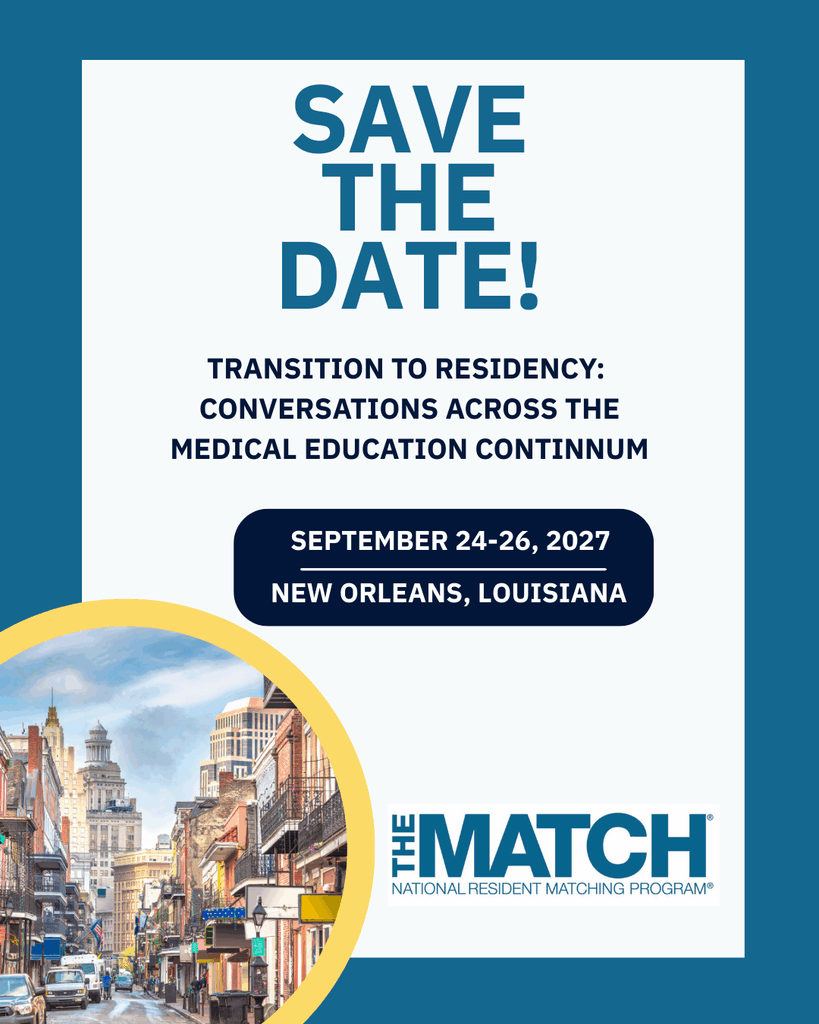NRMP Stakeholder Conference
NRMP Stakeholder Conference Update

Thanks to everyone who attended our 2025 Transition to Residency: Conversations Across the Medical Education Continuum in Washington, DC! It was a wonderful opportunity to gather as colleagues and learn from each other about ways we are digging deeper and thinking bigger about the needs of young physicians as they launch their training and careers.
NRMP is excited about and hard at work on new initiatives for 2026. To allow time and space for those projects, we are planning to host our next Transition to Residency meeting in 2027. Please mark your calendars for September 2027 when we look forward to reconvening the community, this time in New Orleans, Louisiana!
We appreciate your continued engagement, and we hope you ‘Save the Date’ to join us next September. Stay tuned for additional details!
About the NRMP Transition to Residency Conference
The NRMP’s annual stakeholder conference, Transition to Residency: Conversations Across the Medical Education Continuum, was born from an idea in 2014 that a place should exist where both UME and GME professionals could network and discuss the transition to residency. NRMP leadership realized The Match was uniquely qualified to create an environment where stakeholders from both sides of the aisle could share and learn from each other.
Throughout its 10-year tenure, the NRMP’s Transition to Residency meeting has engaged thoughtful plenary speakers and curated meeting content around key themes including:
Innovation in the Transition
The focus and function of undergraduate and graduate medical education has changed significantly over the past 5–10 years. As a community we must stay increasingly attuned to how curriculum, clerkships, residency application, and recruitment must progress and advance to promote the success and well-being of young physicians during and beyond their training.
Technology
The role of technology in health care is constantly evolving and is fundamentally changing the face of medical education, assessment, and residency recruitment. How technology interacts with, even enhances education, training, and practice are critical concepts to understand.
Wellness
The rigors of medical education and residency training can take a toll on the physical, mental, and emotional well-being of learners. Efforts to understand the scale and scope of student and trainee stress and better recognize the collective realities and dangers of physician burnout are a priority.
Advocacy
Shifts in the political landscape leave indelible marks on medical education. As such, it’s important to maintain awareness of legislative directives that impact and inform the efforts of medical educators to train young physicians and prepare them to meet the growing and evolving needs of patient populations and communities across the nation.